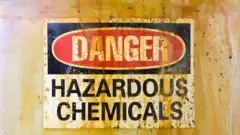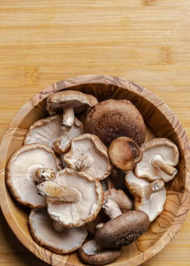01/9Have you ever paid attention to your tongue?

Normally we don’t! But medically it is proven that the tongue shows the symptoms of several diseases. The color of your tongue can be a surprisingly informative indicator of your overall health. While variations in tongue color are usually temporary and benign, certain persistent changes can signal underlying health issues. The tongue is a muscular organ covered in papillae, taste buds, and a mucous membrane, and its color can provide valuable insights into various aspects of your well-being.
02/9White coating on tongue


A white coating on the tongue may indicate oral hygiene issues, such as bacterial overgrowth or fungal infections like oral thrush. It could also suggest dehydration or irritation.
03/9Strawberry tongue


Possible Health Conditions: A red or strawberry-like appearance may signal vitamin deficiencies, particularly B vitamins, or a condition known as Kawasaki disease, which affects the blood vessels and is more common in children.
04/9Black hairy tongue


This condition occurs when the filiform papillae on the tongue become elongated and discolored. It's often benign and may result from poor oral hygiene, smoking, excessive coffee or tea consumption, or antibiotic use.
05/9Blue or purple tongue


A blue or purple discoloration could indicate insufficient oxygen levels in the blood, which may be associated with respiratory or cardiovascular problems. In some cases, it may be a sign of cyanosis, a condition where oxygen levels in the blood are low.
06/9Pale tongue


A pale tongue could be linked to anemia or low iron levels, which affect blood oxygenation. It might also signal poor circulation or inadequate nutrient absorption.
07/9Geographic tongue


Geographic tongue, characterized by irregular red patches with white borders, is usually harmless. It might, however, be associated with psoriasis or other autoimmune conditions.
Taking vitamin D supplements will not help if you have THIS deficiency
08/9How to maintain tongue health


Practice good oral hygiene by brushing your teeth and tongue regularly.
Stay hydrated to prevent dryness and irritation.
Limit the consumption of tobacco and excessive caffeine.
Be mindful of changes in diet and medications that may impact tongue color.
If you experience persistent discoloration or other concerning symptoms, seek medical advice promptly.
Regular self-checks and good oral hygiene practices contribute to overall health awareness. If in doubt or if changes are concerning, consulting with a healthcare professional ensures proper evaluation and appropriate guidance for any necessary interventions.
09/9Yellow tongue


A yellowish tint can be associated with poor oral hygiene, smoking, or excessive consumption of certain foods. In some cases, it may indicate liver or gallbladder issues, such as hepatitis or cirrhosis.













































































































closecomments
SIGN IN WITH
GoogleEmail